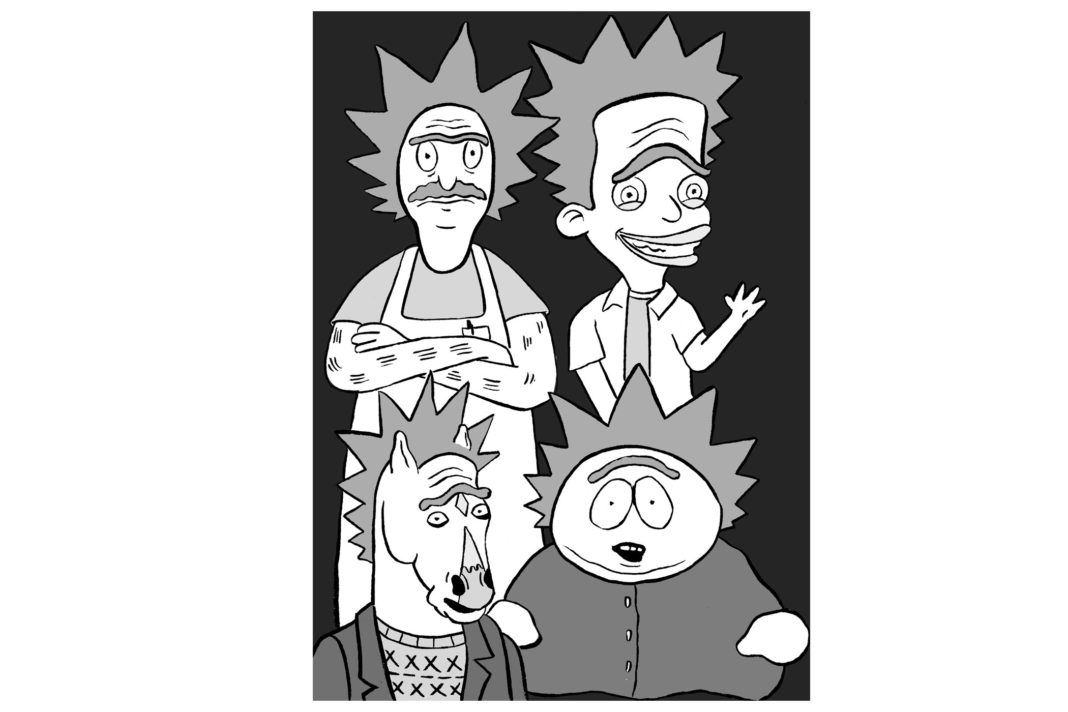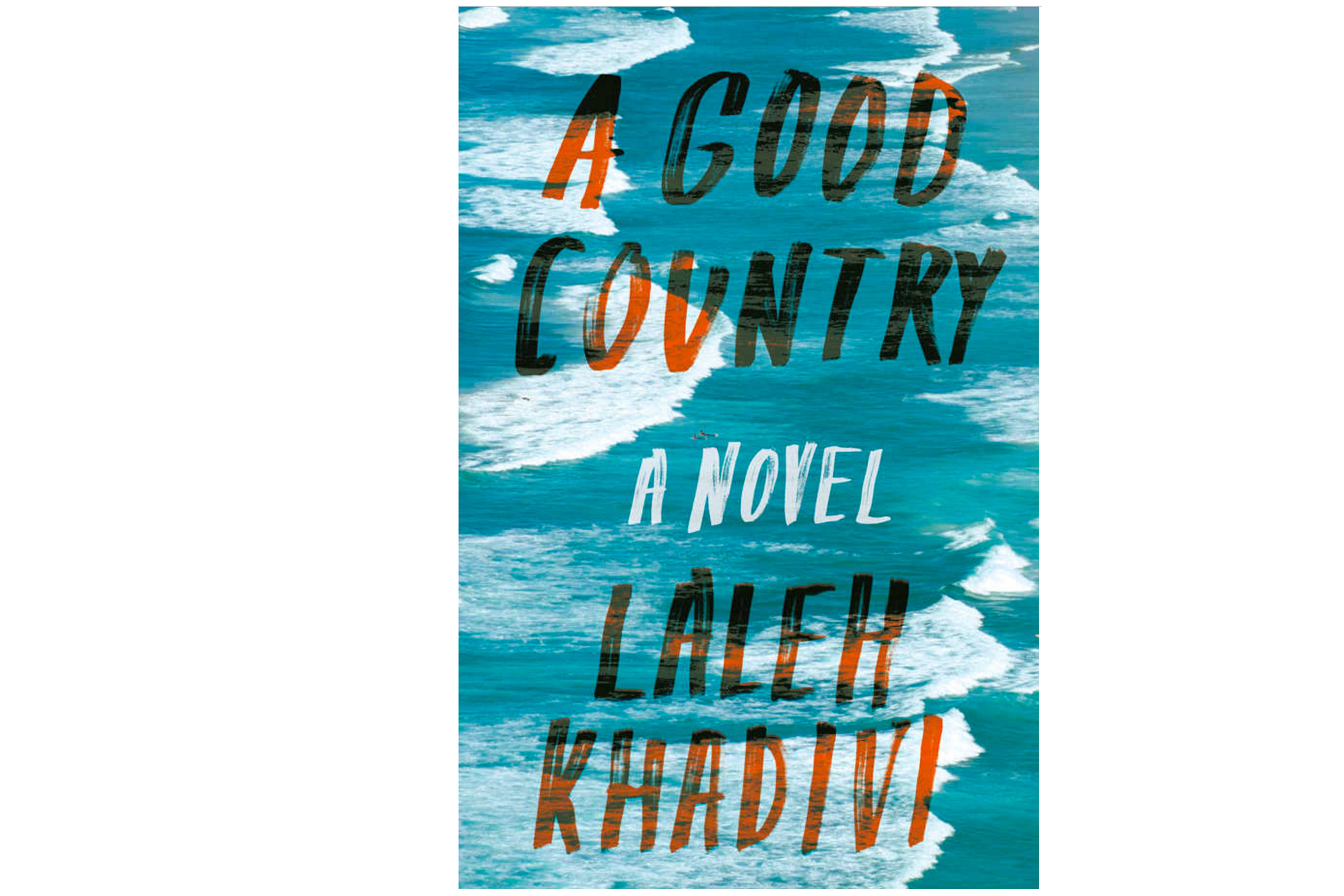I’m always on the lookout for an album I can obsess over. Discovering a binge-worthy album gets even better when I find a modern classic from a working band I can still hear live for under 25 bucks.
The latest album from Toronto punk trio Metz, this year’s Strange Peace, offers both. The album itself is a perfect 36-minute slice of gutsy, dissonant, dance-thrashy bliss, and the band plays Sat. Dec. 9 at Doug Fir Lounge—for 20 bucks even. Serendipity!
Everyone always compares Metz to the louder and weirder early ’90s alt-rock bands (The Jesus Lizard, Drive Like Jehu, Jawbox), but my immediate reaction to the Strange Peace opener “Missing Wires” was, “Well I guess I’m not the only one who loves Voivod.”
This was before I knew both bands hail from The Great North Beyond The Wall, but something in the bitonal layering of crunchy chords, cyber-poppy melody, growling bass and driving caveman beat had me thinking quite distinctly of the Québécois thrash-nerds’ classic ’80s albums.
I mentioned this Vovoid association to Metz guitarist Alex Edkins on the phone. He chuckled. “I’ve never heard that one, but we’re fans,” Edkins said. “Chris [Slorach, Metz bassist] is more well versed in the Voivod. I’ll take what I can get.”
Metz self-produced its first and second albums, 2012’s METZ and 2015’s II, with engineering help from band members’ pal Graham Walsh of Holy Fuck. While writing and touring new material for the third album, the band got a little nudge from the Gods of Coincidence.
“We were in L.A. doing a show, and I think a Mclusky song came on,” Edkins said, referring to the Welsh punk trio. “Just the drum sound was like, ‘this is going to fit’—that dark, iconic drum sound.”
So wait, what iconic sound? Edkins was talking about the sound everyone who talks about Strange Peace can’t help talking about: It was recorded by Steve Albini, notorious multi-instrumentalist and engineer responsible for (among other things) the fucked up little conversations on the Pixies’ Surfer Rosa, The Jesus Lizard’s acclaimed Goat, and the various mixing controversies surrounding Nirvana’s In Utero.
Albini is famous for his raw, loud, redlined sound, and Metz had already been compared to Albini’s ’80s band Big Black and Albini-produced acts like The Jesus Lizard. “It was something we’d been fighting against almost,” Edkins said. “There’s been so many people referencing Big Black, Jesus Lizard—and we love that stuff. People were like, ‘when are you gonna record with [Albini]?’ We’d been pushing back.”
When the fortuitous Mclusky song came on in Los Angeles, they knew it was time. Slorach phoned Albini’s studio in Chicago that day to ask if Albini was interested in recording Metz. “It was ‘yep,’” Edkins said. “We didn’t want to do the exact same thing.”
After years of holding out and developing as DIY artists, the too-obvious choice had matured into the inevitable choice.
Albini’s signature non-sound (as near as I can tell he just turns everything up and stays out of the way) serves Metz well. Edkins said the band rehearsed the new material intensively before going into the studio, “rehearsing quite a bit until we knew it inside out.” The band was wary, though, of over-preparing and overthinking things.
“[We] left the skeletons of the songs, not open-ended, but they weren’t super scripted either,” Edkins said. “We knew what we were going to do, but we didn’t know the end product. We knew what the skeleton would be.”
The punk ethic in the studio: Roll tape, never look back. “It’s one of the appeals of working with [Albini],” Edkins said. “You need to keep moving forward and not look back and tweak things and bang your head against the wall.”
The spare, grooving immediacy of Metz’ songs sounds beautiful in Albini’s rich, uncluttered, less-is-louder world. The band found this balance early on, moving from longer, more involved songs to something approaching three-minutes-or-less punk orthodoxy.
“We hit on a thing that made us feel really good, and I think it was connecting better with the crowd, that short abrupt punch in the face,” Edkins said. “You can’t help but notice that it has an effect on people, but it’s also what comes naturally to us as musicians, not to overload the song but take one or two strong ideas and make that the song.”
We hear the time-dilated beauty of this balance when one brutal minute can feel like a whole song, three dense minutes can feel like 10, and six epic minutes can reach peaks of grand musical splendor.
“There’s a nice mixture of ‘keep it stupid’ and also being pretty meticulous about what we’re doing,” Edkins said. “It’s always been somewhere in the middle. We’re very particular and serious about what we do, but then there’s this basic musicality. We play to our strengths, which I think is our minimalism. [laughs] Our stupidity!”
Indeed, my favorite parts of the album are the insistent repetitive grooves: the strange, stomping, darkly psychedelic riffs that grab your collar like a stoned genius and won’t let go until you’ve been shaken to dribbling ecstasy.
Strange Peace closes, as do the first two albums, with a comparably long track. “Raw Materials” is the sort of song that would go on for a half hour at a Godspeed You Black Emperor! show; at just under six minutes, it’s the longest song Metz has released to date (narrowly beating 2009’s B-side “Ripped on the Fence.”) It’s glorious and hypnotic in a The Fall kind of way.
“We thought of it as almost two songs,” Edkins said. “We wanted to allow for the songs to breathe a bit, something where you could live in a song a little more. When we wrote this song, we knew this record was going to go new places. When we finished it we said, ‘that is exciting to us, we haven’t done that before.’ It was a litmus test for us.”
What else has changed for Metz in 10 years playing together? Fatherhood, for one: Edkins has a 15-month-old, and Slobach’s baby is six months old. “That seeped in, some of the anxiety of being unsure of your ability to be a father,” Edkins said. “That was hanging over me in some of the mood of the music and the overarching lyrical sense.”
The new dads are also hitting their stride as a working band. “We’re starting to be a little more comfortable in our skin, starting to block everything else out and truly just make music to please ourselves and not worry about how it’s received,” Edkins said. “That’s harder to do as a younger band. It’s easier at first because you think no one’s listening.”
Metz plays Doug Fir Lounge Saturday, Dec. 9th with Moaning and Deathlist. Visit www.dougfirlounge.com for $20 tickets and more information. Ages 21 and over.






